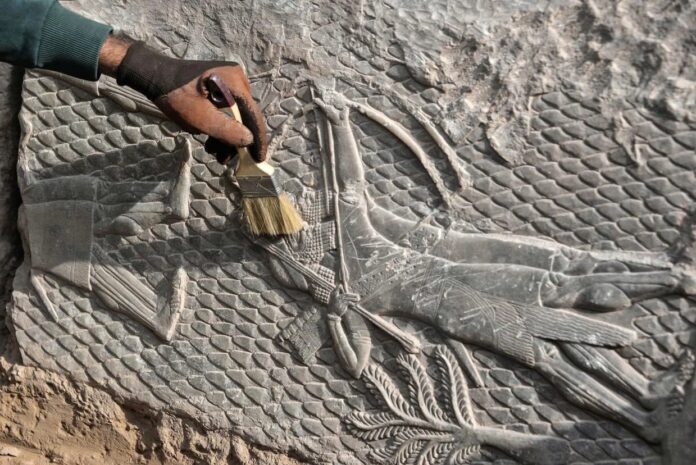Unearthing History: 2,700-Year-Old Reliefs Found Near Mosul’s Mashki Gate
A Glimpse into Assyrian Grandeur
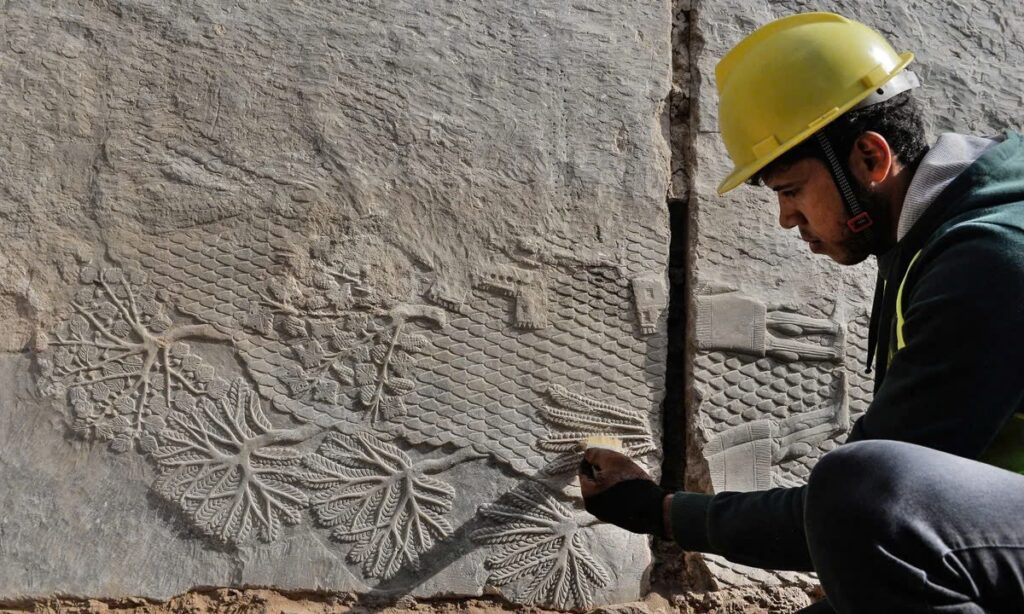
In a remarkable turn of events, U.S. and Iraqi archaeologists have uncovered ancient rock carvings dating back over 2,700 years in Mosul, Iraq. These precious artifacts were discovered during the restoration of the Mashki Gate, an ancient monument partially destroyed by ISIS in 2016.
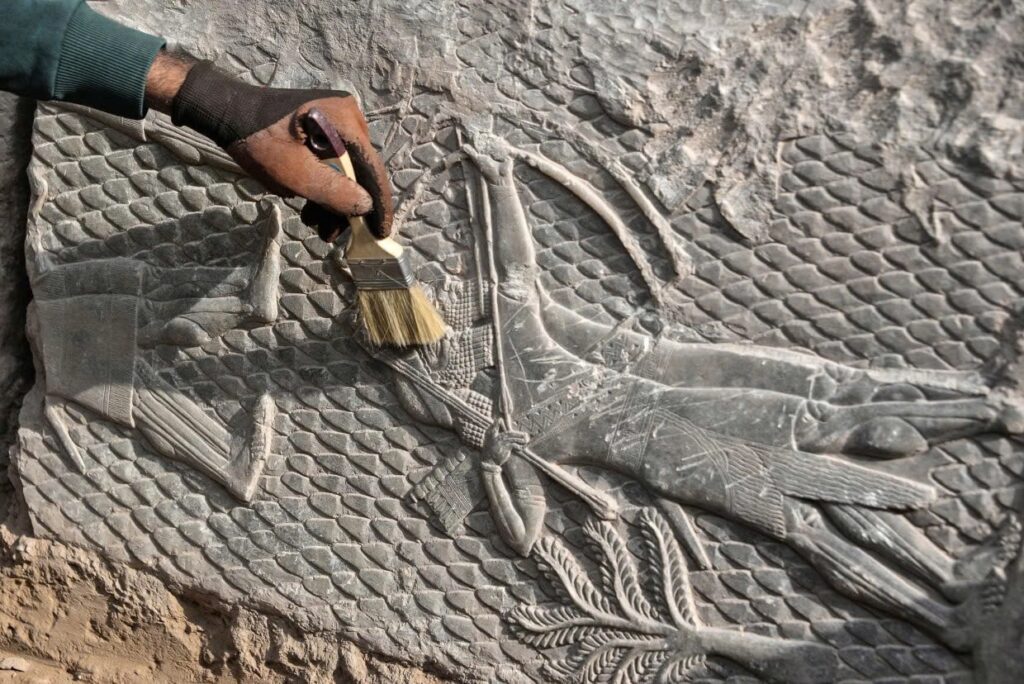
The marble slabs, adorned with intricate relief carvings, offer a window into the reign of Assyrian kings in the ancient city of Nineveh. Ali Shalgham, Director General of the Department of Investigation and Excavation, confirmed that the cuneiform engravings belong to the era of King Sennacherib, who ruled from 750 to 681 BC.
A Treasure Trove of Ancient Art

The discovery comprises eight alabaster slabs featuring vivid depictions of Assyrian soldiers, including one poised to shoot an arrow. The carvings also showcase the rich flora of the region, with images of palm trees, grapes, pomegranates, and figs that once adorned King Sennacherib’s palace.
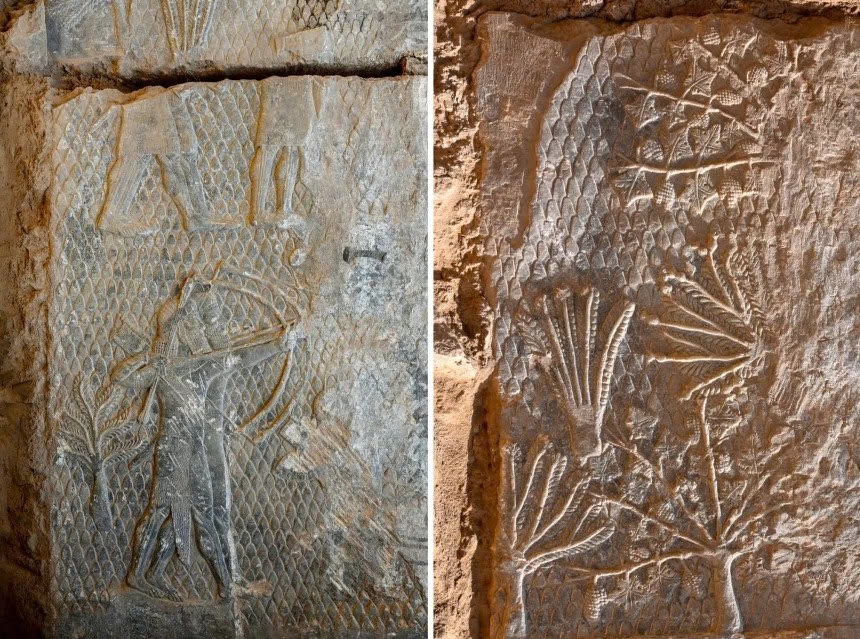
Fadel Mohammed Khodr, leading the Iraqi archaeological team, theorizes that these carvings were repurposed from Sennacherib’s palace for the renovation of the Mashki Gate. This theory highlights the ingenious recycling practices of ancient civilizations.
From Destruction to Discovery
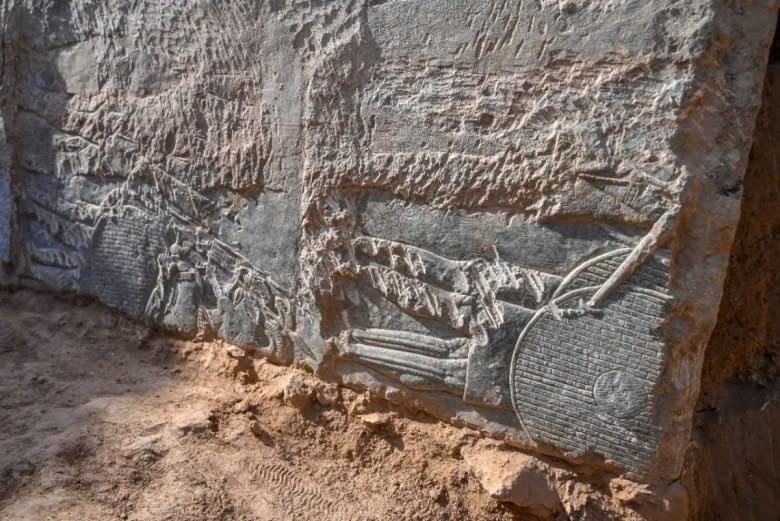
The Mashki Gate, once a symbol of Nineveh’s power and grandeur, fell victim to ISIS’s destructive campaign in 2016. However, this act of vandalism inadvertently led to the preservation of these priceless artifacts. The buried portions of the marble slabs remained intact, safeguarding the carvings for future generations to study and admire.
As reconstruction efforts continue with support from ALIPH and expertise from Mosul University and the University of Pennsylvania, these newly discovered carvings stand as a testament to the resilience of cultural heritage in the face of adversity.
